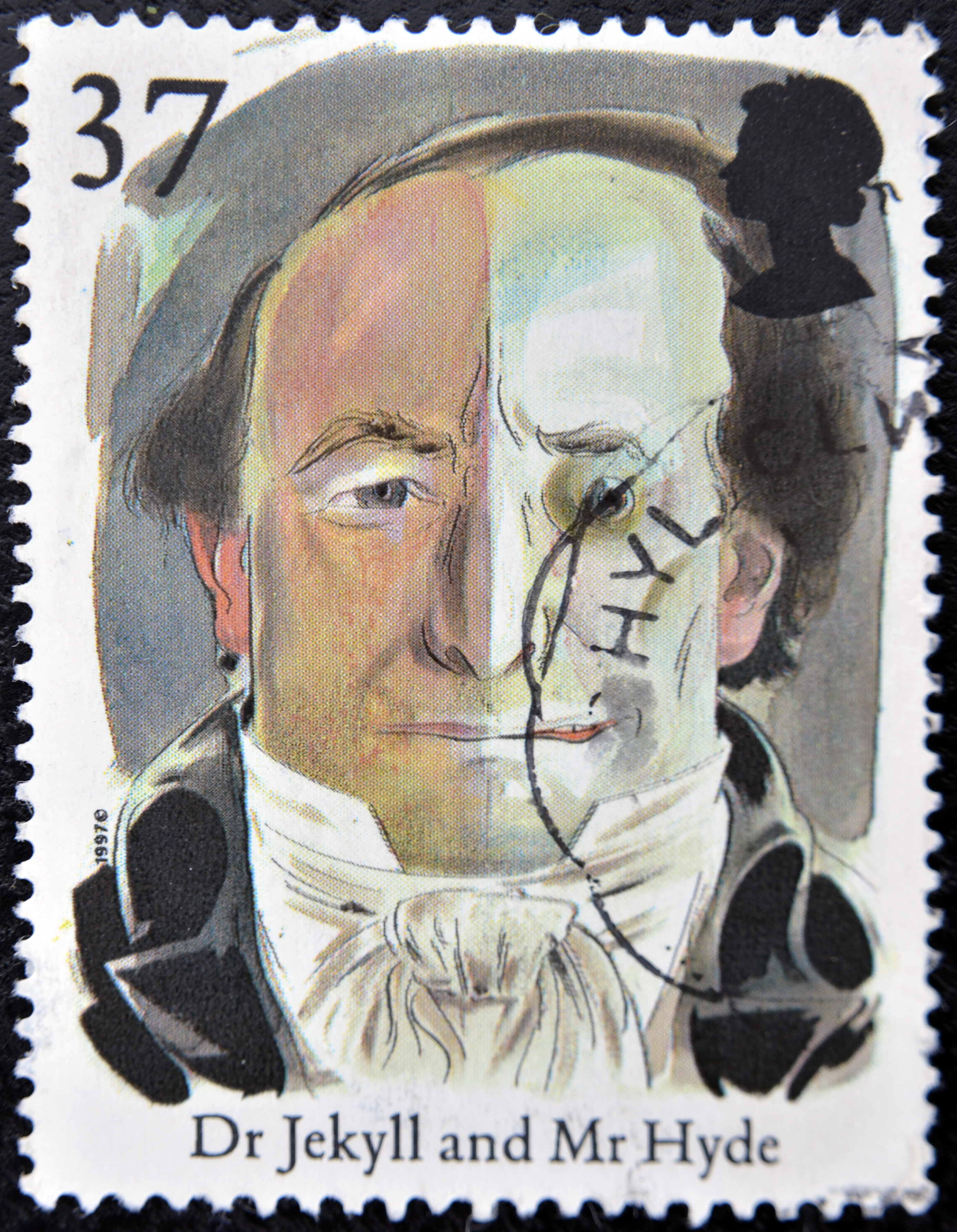Romans 7

In the month of January 1886 there was quite a storm in the literary world with the publication of Robert Louis Stephenson’s novel “Doctor Jekyll and Mister Hyde.” It supposes a situation where a medical doctor, apparently a fundamentally good man, engages in research into a previously unknown drug. This would, he hopes, change a man’s personality by releasing hidden forces and tendencies which are normally repressed by his background, lifestyle and environment. He carries out this research in private. He tests the drugs on himself. Eventually, he discovers a mixture which seems to give him what he wants. At first, he enjoys the fascinating results. Indeed, he is absolutely thrilled to experience the changes which take place in his personality.
The dark side to the story is this. At first, the doctor assumes that he himself is in total control. His research produced the drug. He administers the drug to himself. He chooses when to do it. He enjoys the thrill of being able to switch between being the nice Dr Jekyll and the nasty Mr Hyde. In particular, he enjoys the secret that he is living a double life, each part completely different to the other. However, before long, he is horrified to discover that he is developing a craving for the drug. He actually enjoys being the nasty Mr Hyde, and looks forward to his next bad session. Worse still, he is even more horrified to discover that, before long, even without taking the drug, the evil side of his personality takes over, not when he chooses to release it, but at the most unexpected and inappropriate times. Eventually, it takes over completely. He finds himself agonising over the fact that he is now completely under the control of a power much stronger than himself. He is totally ashamed of the dark forces within. Instead of controlling them, and enjoying the thrill of letting them out when he chooses, he finds himself under their control. He finds himself completely unable to repress them, however hard he tries.
Some, indeed many, would assume that the author is depicting Dr Jekyll as a schizophrenic. I, personally, feel that darker, more fundamental, indeed spiritual, issues are involved. Now, I have no idea to what extent, if any, Robert Louis Stephenson was conversant with Chapter 7 of the Epistle to the Romans. I do know this: the conflict between the nice Dr Jekyll and the nasty Mr Hyde is a replication of the moral and spiritual struggle recounted in Romans 7. What’s it all about?
The Epistle to the Romans is addressed to Christians, believers on the Lord Jesus Christ. It is very often used as a basis on which to preach the gospel. Nevertheless, in itself it is not so much the preaching of the gospel to the sinner, as the teaching of the gospel to the Christian. By the time we get to chapter 7, the need for salvation by every responsible person in the world has been made plain. The only righteous basis for the forgiveness of sins being granted to the repentant sinner has been unfolded. It is available to all, but it is effective only in those who believe the Christian gospel. As we read in 3:22, the blessing of God is available, potentially, unto all, but is effective only in those who believe in Jesus. The absolute assurance of salvation for those who believe that Christ died for them, according to the scriptures, and that He was buried, and rose again the third day, according to the scriptures, is emphasised in the following chapters. The potential and power for a totally new kind of life is unfolded. So far, so good!
Then comes chapter 7. It considers the case of a real believer, who has been truly converted to Christ. He has right desires. He really wants to please his Lord and Saviour. He really intends to live a clean, God-honouring life to show his gratitude to the God Who has saved him. He longs to show everybody who knows him what a wonderful change has taken place in him since he trusted Christ as Saviour.
Then comes the snag. A big snag! The harder he tries to do what he knows to be right, the more he finds that, in spite of himself, he catches himself doing what he knows is dishonouring to God. Chapter 7 of Romans is somewhat of a soliloquy. The writer talks it through with himself. “What’s going on?” he says to himself. “When I try to do the right thing, I find myself powerless to do it. On the other hand, however hard I try, I cannot prevent myself doing what I know to be wrong, even, or especially, when I don’t want to do it.” Much like Dr Jekyll, when his drug had got hold of him, I suppose! Whether or not this is, or has been, the personal experience of the writer, the Apostle Paul, we are not told. One thing is sure. It has been, and continues to be, a real problem for many true believers on the Lord Jesus Christ. In our naivety, we might well assume that, once we have turned to the Lord, and our sins have been forgiven, and we are on our way to heaven, life will be straightforward and easy. Not a bit of it! The Bible tells us many things. It certainly does not tell us that the Christian life will be a bed of roses. Anything but!
What, then, is the problem? At rock bottom, what is the root cause? Flick your eye down the verses of Romans 7. Isn’t the problem obvious? I, me, my, mine! 51 times in all, in this reasonably short chapter! No wonder that the person is bogged down in the Slough of Despond, if we may borrow the figure from Pilgrim’s Progress. It’s all about himself, from start to finish. And no reference at all to the Holy Spirit! There’s no deliverance in self, that’s for sure. Have you ever stood in a bucket, both feet, and tried to lift yourself off the ground? Absolutely impossible!
The Apostle Paul tackles the problem, first of all, by taking up the analogy of marriage. Marriage, as he so rightly says, brings responsibilities as well as privileges. However, if a woman is married, and her husband dies, that terminates the marriage, and her responsibilities within that marriage cease. If she then marries again, she has entered into a new relationship, which brings new opportunities, privileges, and responsibilities. She is very unwise if she keeps harking back to the way things were in her previous marriage. It’s over. She has started a new life. Those who received the letter would understand that principle from their experience in daily life. Well, says Paul, the analogy also has a valid application in Christianity.
Let us pause there. In many places in the Bible, perhaps particularly in the Epistles to the Romans, Corinthians and Galatians, Paul is very strong on one particular point. It is this. There is only one end, one terminal point for anything that springs from me, my thoughts, my actions. What is that end? Judgment pronounced by a Holy God! Why is that? Because I have inherited a sinful nature from Adam, the head of the human race. That nature expresses itself whenever and wherever I give it the opportunity. I am not responsible to God for having that sinful nature. I am responsible to God for allowing that sinful nature to express itself in sinful thoughts, words or deeds.
Happily, I have put my trust in Christ, believing that He died for my sins, and rose again for my justification. I have accepted that in the death of Christ, my old sinful life was brought to an end in the sight of God. It is finished. It has been blotted out. It is gone. Christ has answered to God for every sin committed by me. Paul teaches that, in the death of Christ, God has brought my old life to an end. Christ has answered every claim of God against me, in respect of every sin I have committed in that life.
Like the woman who has been bereaved and remarried, I need to accept, once and for all, that my previous life, and what I did in that life, have been terminated in God’s sight by the death of Christ. That’s fine. But, and this is the hard bit, I must also accept that the judgement of God, borne on my behalf by Christ, in dying as my substitute, was necessary because of what I as an individual did. It was certainly the old nature that prompted the sins. But as a responsible person, I was responsible to God for committing the individual sins, every one of them. That’s all over. As the prophet Isaiah says, “God has blotted them out.” Like the woman who has been bereaved and married another, I am wise if I accept that the old life, the self-centred, self-orientated life, is over, finished in the death of Christ. Indeed, it was the old life that made the death of Christ essential. Surely, I must not resume the way of life that made it necessary for Christ to suffer the agony and shameful death of the cross of Calvary.
In a very positive way, if I am to live the Christian life to the full, in a way that is well-pleasing to God, it is imperative that I accept the death of Christ as God’s definitive statement of His assessment of my old life. God has expressed His judgment of it in sending His Son into the world. In doing so, He has met the need to establish a righteous basis for our relationship with Him, through the death of Christ. At the same time, He expressed the wonder of His love for us. In the light of this, a Christian’s life, full of self, would be totally obnoxious in the sight of God. Paul, then, highlights the fact that the person who finds himself in the predicament recounted in Romans 7 is there because he does not fully understand, or is not willing to apply, the truth of what was really involved in the death of Christ on our behalf. Let us learn and accept the lesson once and for all. It is a difficult lesson, but an essential one.
But, not only has our old life been brought to end in the death of Christ. A new life has begun. God has linked us with Christ not only as the One Who has died, but also as the One Who has been raised again from among the dead. Furthermore, He has given us a new nature, a nature that is capable of pleasing God. He has also given us a new power in which and by which to live that new life. That power is a Person, the Holy Spirit, Who dwells within us. We know that is true because God says so in His word.
Why, then, is there still this problem? Why is there this on-going conflict? Why is there this continuing struggle? It is for this reason. God has certainly given us, put within us, a new nature. However, He has chosen to leave within us the old nature also. Hence the struggle! Hence the conflict! Oh, the wisdom of God! He has left us with the two natures, the old and the new, so that we have the opportunity to choose the new, and refuse the old. In any situation, on any day, at any moment, there is greater glory to God in our choosing to respond to the appeal of the new nature and not the old, rather than being mere automatons, doing what is right because we have been programmed to do so. Incidentally, if anyone is reading this who is agonising over this kind of inner conflict, be encouraged. The fact that there is a struggle going on tells you that there are the two natures within you. Otherwise there wouldn’t be any struggle. The old nature would reign supreme, unchallenged.
Nevertheless, it is certainly not easy. Wherein is the answer to be found? Indeed, is there an answer? One of my favourite authors makes a wonderful comment in one of his books. He has this to say. “The answer to every question posed in scripture is found in scripture. However, the key is not always hanging by the door.” Happily, in this case, the answer is ready to hand. It is given in vv. 24-25. Listen to the words, then we’ll think about their meaning: “O wretched man that I am! Who shall deliver me from this body of death? I thank God through Jesus Christ our Lord.”
This is not all that easy to expound. But, consider this. Notice, first of all, that the cry is for deliverance, not pardon. He already has pardon. His sins are forgiven. He has trusted Christ as Saviour. His sins have been cleansed away by the precious blood of Christ, as we read in 1 Jn. 1:7. He is absolutely clear of God’s judgment on sin. He has no qualms about the day of judgment. He is ready for heaven while living on earth. Pardon is not the issue. What is at stake is deliverance from the power, or control, of sin in the life he lives on earth. He has so accepted the teaching involved that he regards the old nature, and the lifestyle it produces, as obnoxious to him as a stinking corpse. “Who will deliver me,” he says, “from this dead body, this nauseating, stinking corpse that I have to hump around with me wherever I go.” Imagine being chained to a corpse and having to carry it around with you everywhere you go! A sickening thought!
The heart-rending cry for deliverance brings an immediate answer in his own soul, prompted, no doubt, by the Holy Spirit. “I thank God,” he says, “through Jesus Christ.” That’s it! The answer is in a Person. Deliverance is effected by a Person! That Person is the Lord Jesus Christ, the One Who died for us and rose again. The old life, the self-life, brought me under the judgment of God. The new life is to be a Christ-centred life. Only a Christ-centred life, lived under the control of the Holy Spirit, can in any way be a life lived on earth to the glory of God.
“I thank God.” This is an intensely personal, individual experience. It isn’t something we can do for one another, nor in a crowd. It must be a judgment I come to in the faith of my own soul. But Paul goes on. Having gone through the experience as an individual, he finds himself in the happy company of others who have had the same personal, individual experience. How do I know that? Listen to what he goes on to say. “I thank God through Jesus Christ OUR Lord.” His personal, individual experience leads him into the company of others who are likeminded with him in their mutual appreciation of this wonderful deliverance. It’s always like that. What we enjoy as individuals strikes a chord in those who have shared in the same experience, leading to a collective response of thanksgiving to the God Whose plan it is.
Let us remind ourselves that we are talking about the real experience of many earnest Christians. Let us pray that they, and we, will learn the lesson. In doing so, we shall then be enabled, with God’s help, to keep the old nature in check. Furthermore, we shall then be able, also, to allow and encourage the new nature to express itself; to live not for self, but for Christ, and live increasingly in His likeness. Certainly, we shall never achieve sinless perfection in this life. However, with God’s help, and in the power of the Holy Spirit Who dwells within us, our motives, and our lives too, can follow the pattern expressed in those lovely words of Theo Monod, which speak of the joy of such a transfer.
Oh, the bitter shame and sorrow,
That a time could ever be,
When I let the Saviour’s pity
Plead in vain, and proudly answered,
“All of self, and none of Thee!”
Yet He found me; I beheld Him
Bleeding on the accursed tree,
Heard Him pray, “Forgive them, Father!”
And my wistful heart said faintly -
“Some of self, and some of Thee.”
Day by day His tender mercy,
Healing, helping, full and free,
Sweet and strong, and ah! So patient,
Brought me lower, while I whispered,
“Less of self, and more of Thee.”
Higher than the highest heavens,
Deeper than the deepest sea,
Lord, Thy love at last hath conquered;
Grant me now my supplication -
“None of self, and all of Thee.”





